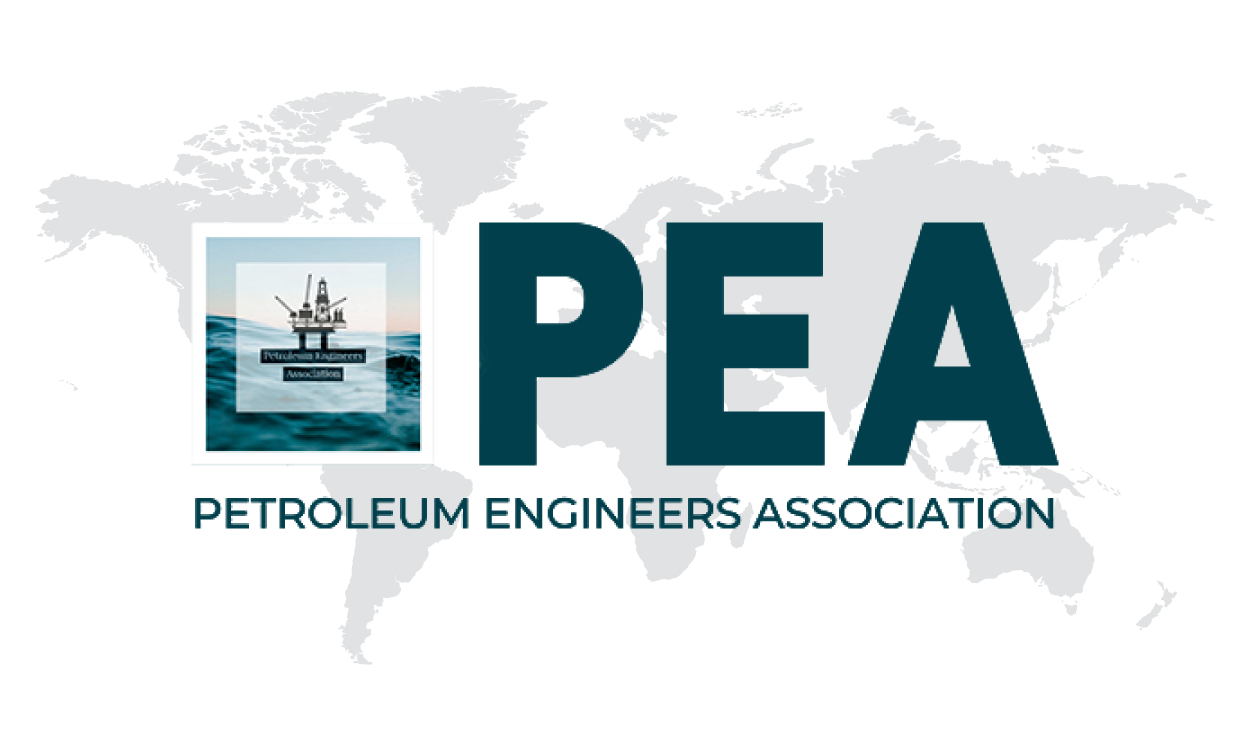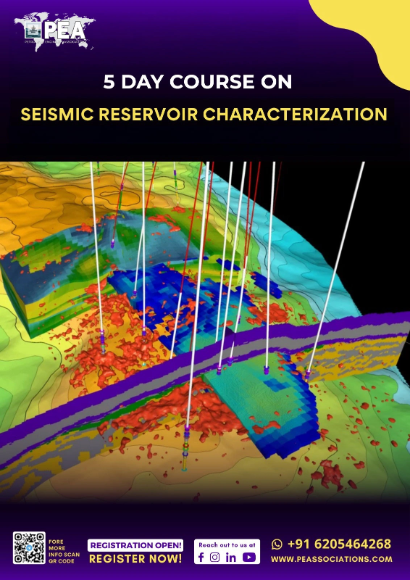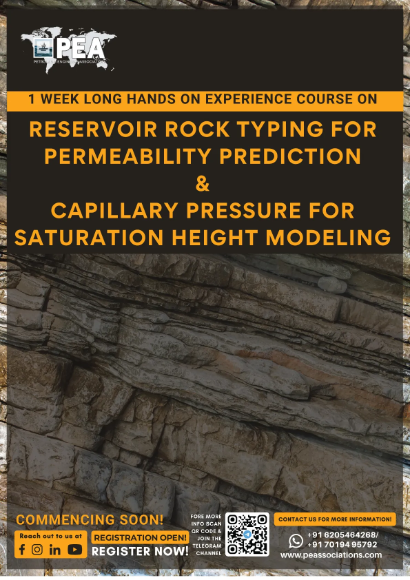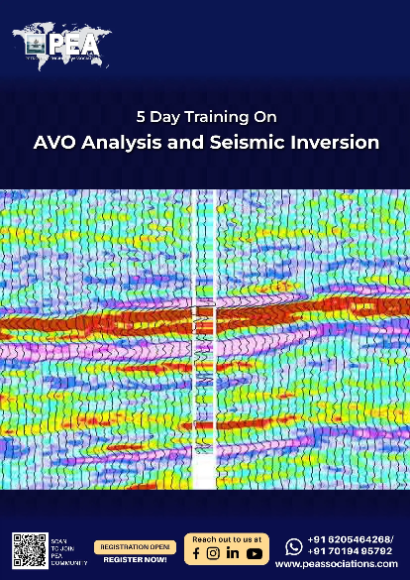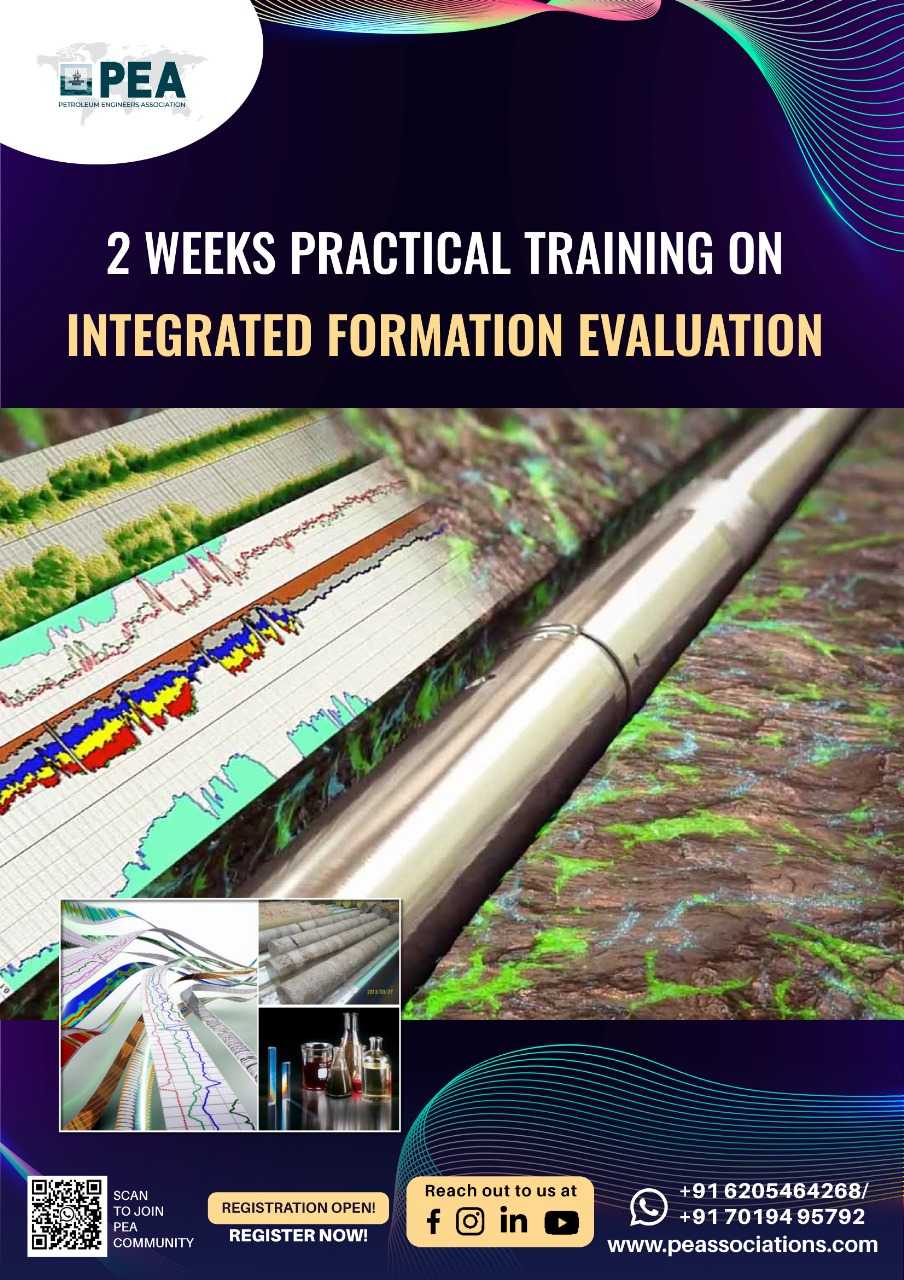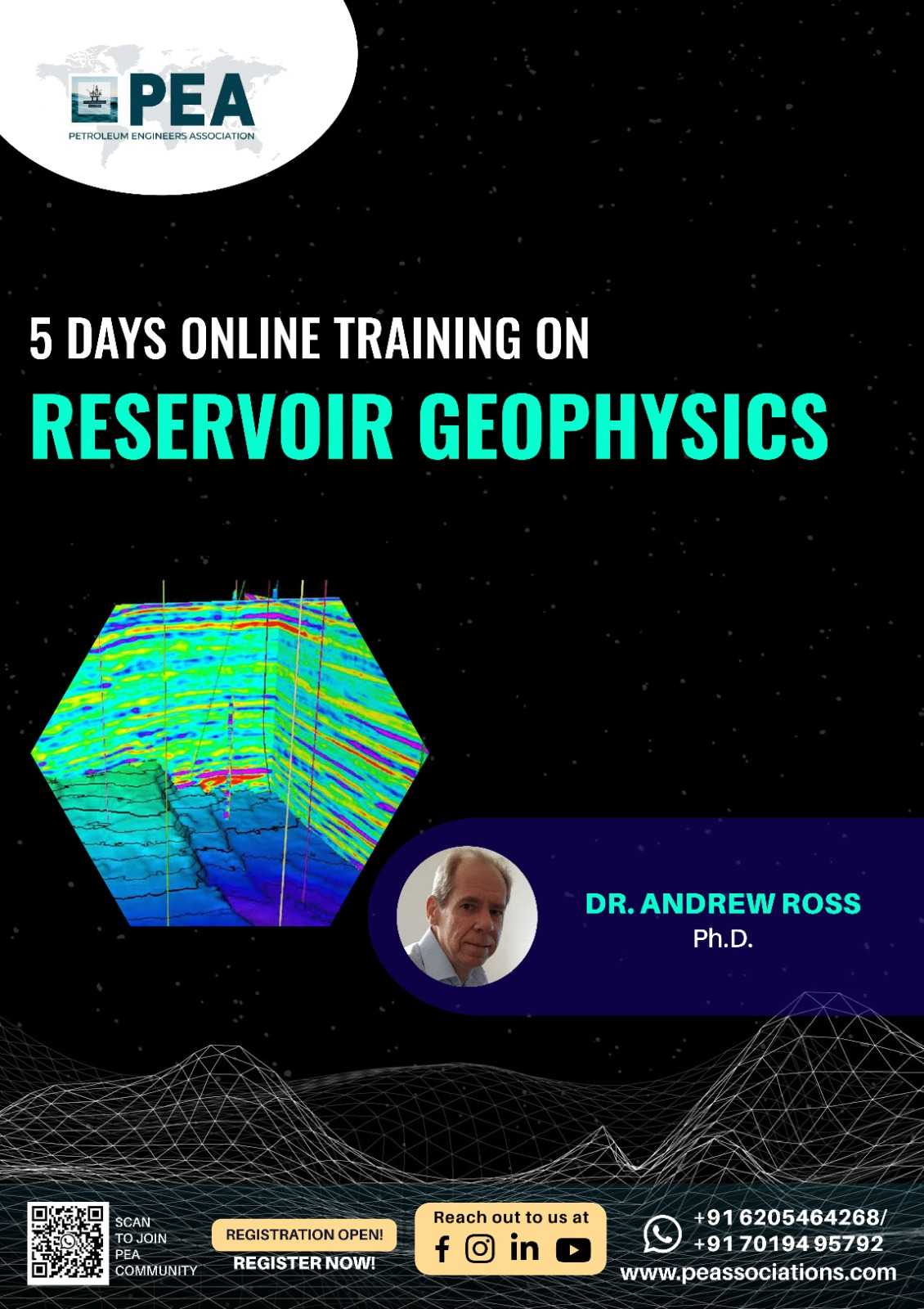Seismic Reservoir Characterization
| Code | Date | Time | Duration | Location | Currency | Team of 10 Per Person | Team of 7 Per Person | Early Bird Fee Per Person | Normal Fee Per Person |
|---|---|---|---|---|---|---|---|---|---|
| GG-SRC26 | 26 - 30 Oct 2026 | 9 PM Indian Time |
4 Hours Per Day
|
Zoom Online
|
USD
|
1500
|
1650
|
1850
|
2500
|
The Classes will be Online Via Zoom from Monday to Friday- 4 Hours / Day.
Boost your team's skills and your budget! Enjoy group discounts for collaborative learning. Send an inquiry to info@peassociations.com.
Seismic Reservoir characterization
This comprehensive course provides oil and gas professionals with the knowledge and skills to utilize seismic data for detailed reservoir characterization. It covers key concepts, methodologies, and applications essential for improved hydrocarbon detection and reservoir evaluation.
Description
The purpose of this course is to introduce geoscientists to rock physics and seismic techniques as they are applied to characterize the reservoir. The course will cover various aspects of the delineation of reservoirs, determination of internal structure and estimation of reservoir physical parameters. We will look at the role of seismic attributes, including amplitude variation with offset (AVO) attributes, in reservoir characterization. We will also investigate elastic and petrophysical parameters and look at their application in time-lapse seismic. The course will also look at the application of seismic inversion in reservoir geophysics including stochastic inversion and measurements of uncertainty.
Demo Class
Seismic reservoir characterization has become a vital tool in modern petroleum exploration and development. By integrating seismic data with geological and petrophysical inputs, professionals can gain a deeper understanding of reservoir architecture, heterogeneity, and fluid distribution. This course equips participants with both theoretical knowledge and applied skills to conduct effective seismic reservoir studies and support better field development strategies.
By the end of this course, participants will be able to:
-
Understand the principles of seismic reservoir characterization.
-
Apply seismic attributes to identify reservoir features.
-
Perform AVO analysis and seismic inversion techniques.
-
Integrate seismic data with well logs and geological models.
-
Reduce uncertainty in reservoir interpretation and decision-making.
-
Interpret case studies and real field data for practical insights.
This course combines engaging lectures, interactive discussions. Real-world examples, case studies, and workflows using industry-standard learning and ensure practical understanding. Participants will be encouraged to analyze and interpret seismic datasets to apply what they learn immediately.
Organizations will benefit by:
-
Improving accuracy in reservoir evaluation and development planning.
-
Reducing exploration and production risks through better data integration.
-
Equipping teams with advanced technical skills for subsurface decision-making.
-
Enhancing cross-disciplinary collaboration between geoscientists and engineers.
Participants will gain:
-
A strong understanding of seismic reservoir characterization methods.
-
Practical skills to apply in exploration, development, and production projects.
-
Confidence in interpreting seismic data for better reservoir management.
-
Career advancement opportunities by mastering in-demand technical expertise.
This course is ideal for:
-
Geoscientists and Geophysicists involved in reservoir evaluation.
-
Petroleum Engineers and Reservoir Engineers seeking to integrate seismic data.
-
Exploration and Development professionals working on subsurface projects.
-
Data scientists and technical staff supporting geoscience workflows.
-
Managers and decision-makers who want to understand seismic characterization’s value in field development.
Day 1: Introduction, Rock physics and Seismic conditioning
Introduction to Seismic Reservoir Characterisation.
Rock physics principles
Shear estimation
Fluid substitution
Anisotropy
Seismic processing for true amplitudes and QI
Day 2 : Reservoir dimensions
Seismic interpretation and reservoir dimensions
Post stack volume attributes
Surface attributes
Volume and horizon probes
Spectral decomposition, thin layers and tuning
Wedge modelling
Thickness calculations
Day 3 : Internal structure and Fluids in Reservoirs
Seismic Facies analysis
Multi-attributes
Supervised and unsupervised classification and artificial intelligence applications
Direct Hydrocarbon Indicators
Amplitude Variation with Offset (AVO)
Pre-stack attributes
Fractures and anisotropy
Day 4 : Elastic properties and Petrophysical parameters of Reservoirs
Low-frequency models and wavelets for inversion
Deterministic inversion
Azimuthal inversion
Porosity and lithology determination
Day 5 : Time lapse monitoring and uncertainty
Stochastic inversion and uncertainty
4D and 3C inversion
Rock physics inversion
Geophysics in the Energy transition
On successful completion of this training course, PEA Certificate will be awarded to the delegates

Andrew Ross has worked in the oil industry and academia as a geophysicist since 1991 most recently for Schlumberger in Denmark.
Ph.D. geophysicist with 15 years industry and academic experience in reflection and refraction seismic interpretation and processing, focusing on quantitative interpretation, inversion, seismic attribute analysis and waveform modelling.
Frequently Asked Questions
All course bookings made through PEA are strictly non-refundable. By registering for a course, you acknowledge and accept that all fees are payable in full and are not subject to refund under any circumstances, including changes in personal or professional commitments or partial attendance.
PEA reserves the right to make reasonable adjustments to course content, trainers, or schedules where necessary, without entitling delegates to a refund. Comprehensive details of each course — including objectives, target audience, and content — are clearly outlined before enrolment, and it is the responsibility of the delegate to ensure the course's suitability prior to booking.
For any inquiries related to cancellations or bookings, please contact our support team, who will be happy to assist you.

